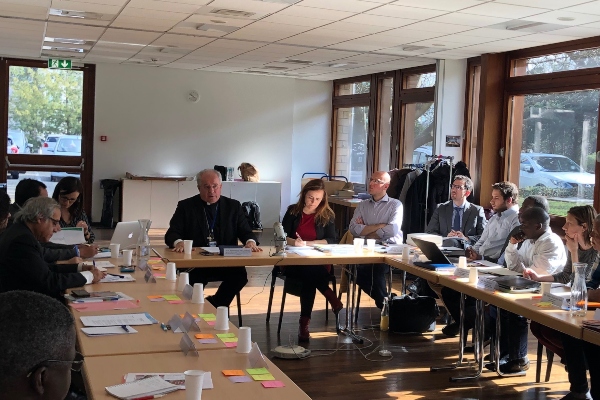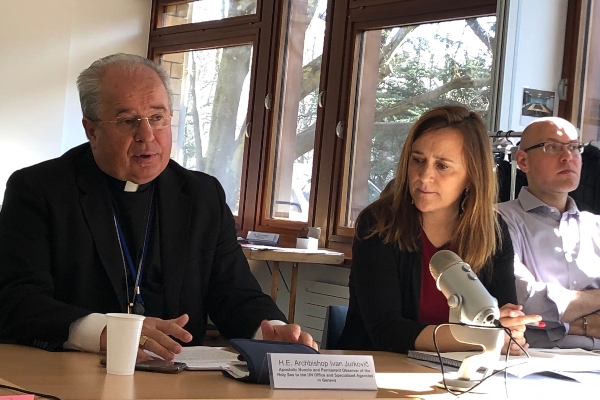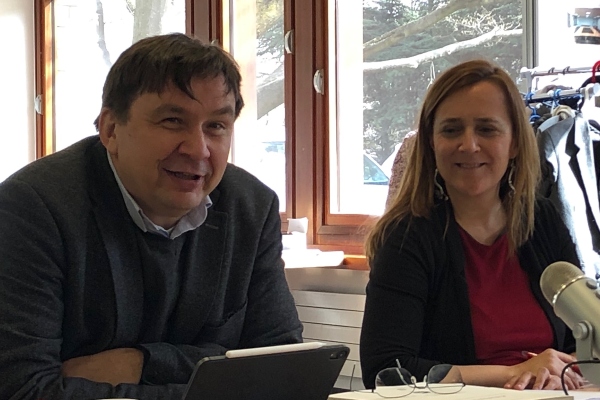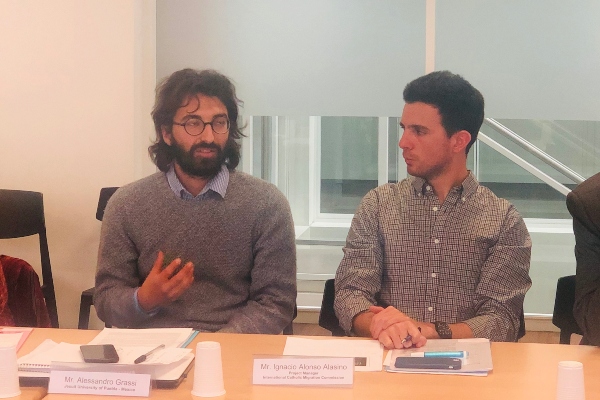Caritas Internationalis Consultation Meeting on Decent Work (26 July 2019, Geneva)

Caritas Internationalis Consultation Meeting on Decent Work
More than thirty representatives gathered at a consultation in March 2019 in Geneva, Switzerland, to meet and discuss the different practices of “decent work” done by the attending Caritas Internationalis Member Organizations (CIMOs). These representatives came from nearly every continent, including but not limited to Ukraine, Nepal, Lebanon, Brazil, Ghana, and Samoa. They were joined by members from the International Catholic Migration Commission (ICMC), “The Future of Work, Labour after Laudato Si” global project, and guest speakers from the International Labour Organization (ILO) and the United Nations Children’s Fund (UNICEF).
The goals of the consultation, as outlined by Caritas Internationalis, were to build a deeper knowledge and understanding of the Decent Work Agenda, develop a plan of capacity building initiatives taking into consideration current challenges expressed by national members, and discuss strategic objectives about decent work for national members and for the whole Confederation. This was done through sessions focused on sharing the good practices of those present through interactive dialogue, discussions about the actions taken by the organizations, specifically on a grassroots level, but also up to and including on the international stage.
The consultation was opened by H.E. Archbishop Ivan Jurkovič, Permanent Observer of United Nations Office and Specialized Agencies in Geneva. He spoke about the Encyclical Laudato Si’ of Pope Francis, and its goals of human development that can benefit all, while still respecting the environment. This important idea remined in consideration through the discussion, as part of the definition of decent work, “dignified life through work”.

After the opening, Mr. Pierre Martinot-Lagarde from the ILO gave a presentation, discussing the role faith-based organizations had in the coming changes to the world of work, as well as the core issues facing the labor market, including the different dimensions related to environmental, social justice, migration, and the development of technology and artificial intelligence (AI) issues. He spoke about the origin and importance behind the “Decent Work Agenda” mentioning the Sustainable Development Goal 8 from Agenda 2030, as well as the ILO’s definition, “work that is productive and delivers a fair income, security in the workplace and social protection for families”. Finally, he mentioned an initiative called “The Future of Work, Labour after Laudato Si”, to demonstrate some of the core issues that the future of work and employment are facing, and the main objectives of this global project.

The CIMO participants were then further informed about the activity that Caritas Internationalis is developing within the framework of “The Future of Work, Labour after Laudato Si” global project. Mr. Ignacio Alonso Alasino, Project Manager of the global project, which is coordinated by the International Catholic Migration Commission (ICMC), focused on introducing the general concept behind, and desired outcomes of, the global project while briefly discussing the focus of one of the Research Tracks led by the ICMC: Jobs, demography and migration. Mr. Alessandro Grassi, a researcher at the IBERO University of Puebla, focused more specifically on the research his track focuses on: Jobs, violence, and the link between social justice and peace; while also explaining why research into these areas in relation to labor was so important.

The majority of the consultation was composed of presentations from the gathered representatives from different CIMOs which explained the reality of what is happening in their respective countries, and what Caritas is doing there. They included specific projects, with the problems and successes encountered in promoting decent work, as well as their linkages with regional and global trends. For example, Caritas Samoa spoke of the youth programs they had started to help tackle their priority of youth unemployment, and the social media presence they utilized for public relations. On the other hand, Caritas Nepal and Caritas Lebanon talked about the programs they had tried to help with the massive amounts of incoming migration their nations faced.
The concept “decent work” fundamentally promotes the idea that everybody should have access to work that helps bring purpose and the potential for growth. Achieving such a monumental shift in how we perceive work as a society is not a simple task, and providing said work to the most vulnerable, even more so. Through the dialogue exchanged between the CIMOs and the guest speakers in attendance, many capacity building ideas were exchanged as well as ideas of how to improve networking and communication at the grassroots level.

